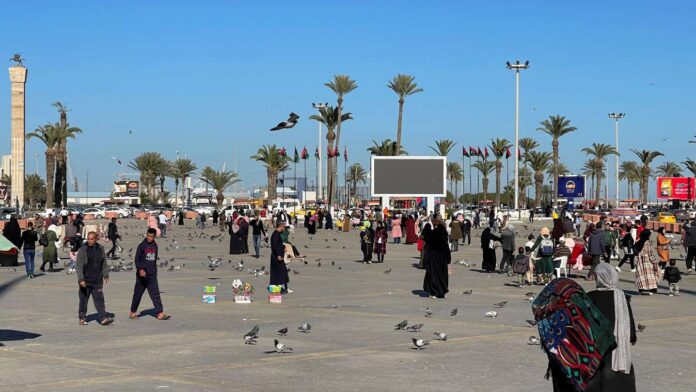
TRIPOLI (Reuters) – Libya’s parallel eastern administration welcomed Friday’s announcement of a new interim government to unite the country, but added it would only cede power if the eastern-based parliament approved.
Saturday’s qualified statement of support – leaving scope to oppose the move later – illustrates the challenges that may face U.N.-led efforts to find a political solution to a decade of chaos, division and violence.
Libya has been split between east and west since 2014, with the internationally recognised Government of National Accord (GNA) in Tripoli, and a rival administration in Benghazi backed by Khalifa Haftar’s eastern-based Libyan National Army (LNA).
On Friday, participants in U.N. talks in Switzerland voted on a new presidency council and government head to oversee the run-up to national parliamentary and presidential elections planned for December.
Losing candidates in the vote – including the eastern-based parliament head Aguila Saleh and western-based interior minister Fathi Bashagha and defence minister Saleh Namroush – have made public statements of support for the new government.
Under rules agreed by the Libyan talks participants picked by the United Nations to represent the country’s rival political currents, the new prime minister, Abdulhamid Dbeibeh, has three weeks to form a new government and present it to parliament.
Parliament split in 2019 as a group of lawmakers broke off, making any agreement by a full quorum difficult. If it does not ratify the new government, however, the U.N. talks participants have agreed that they have the power to do so themselves.
The parliament had opposed the formation of the GNA, appointing its own parallel eastern-based administration under Abdullah Thinni. He said on Saturday his administration would not stand down until a full parliamentary assembly approved the new government.
Haftar, who was appointed army chief by the eastern-based parliament, did not issue an immediate statement. However, his general command headquarters said it welcomed the agreement and called for all to help reaching the December elections.
The United Arab Emirates and Egypt, which both backed Haftar during the war, have publicly voiced support.
Tayyip Erdogan the president of Turkey, which supports the GNA, spoke by phone with Dbeibeh and the new presidency council head Abdulmajid al-Menfi to congratulate them, his office said on Saturday.
Erdogan told them that Turkey, whose forces helped repel an attack on Tripoli by Haftar last year, would “continue to contribute to the peace, security and welfare” of Libyans, it added.
The United Nations has previously said the UAE, Egypt, Turkey and Russia broke an arms embargo on Libya that they had publicly endorsed.
(Reporting by Reuters Libya newsroom, additional reporting by Ali Kucukgocmen in Istanbul, writing by Angus McDowall, editing by Christina Fincher and Nick Macfie)
